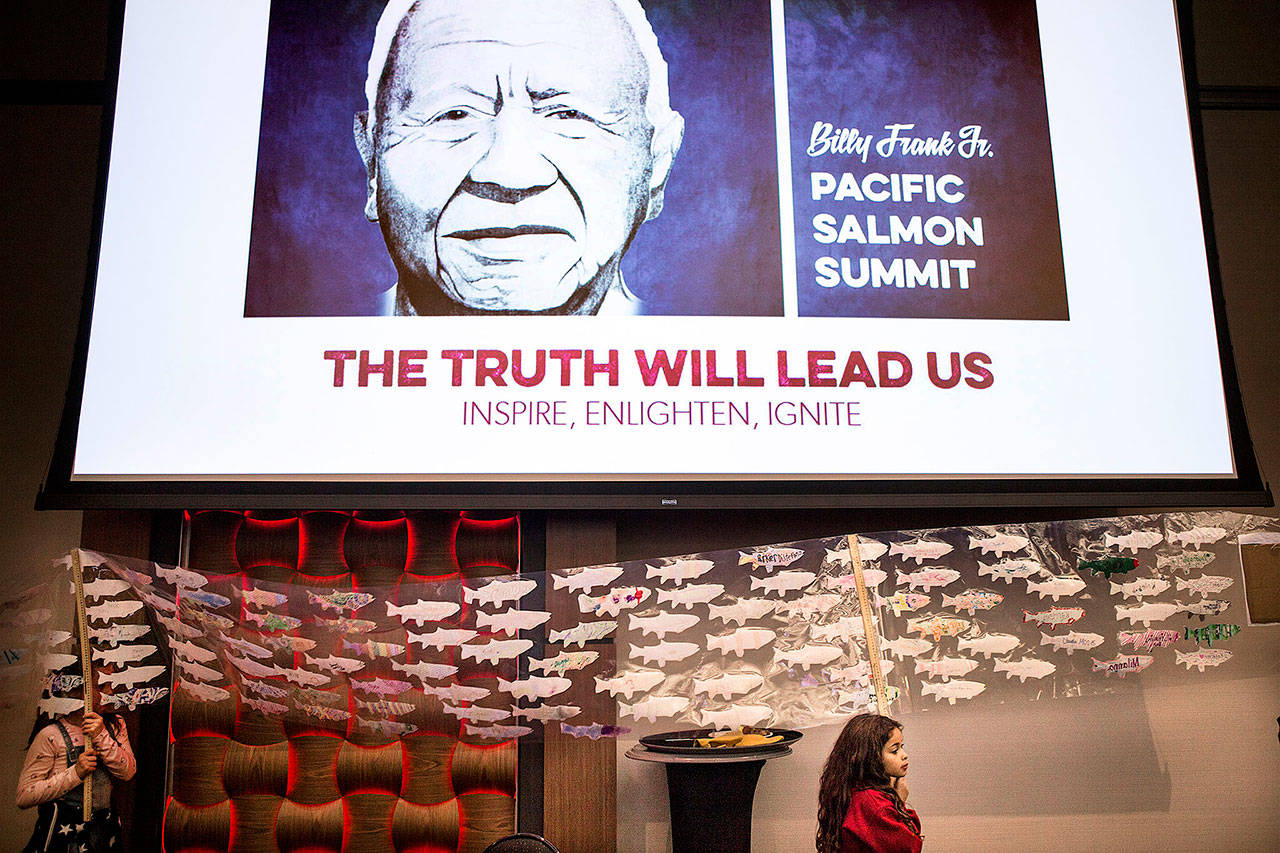By The Herald Editorial Board
Our commemoration of history is sometimes carved in stone, but how we recognize our history, perhaps, shouldn’t be set in stone.
Currently, as it does for every state in the union, the National Statuary Hall Collection at the U.S. Capitol in Washington, D.C., has for decades provided a place of honor for two notable Washington state history makers.
Most will recognize the name of Marcus Whitman from the county and the college that bear his name, if not from their state history classes. Whitman (1802-47) was the settler who, with his wife, Narcissa, established a mission on Cayuse Indian land near Walla Walla in 1836. After initial friendly relations with the Cayuse deteriorated, Whitman, his wife and 11 others were killed in an attack of the mission. Whitman’s statue at the Capitol has represented the state there since 1949.
Whitman’s statue is joined by one honoring Mother Joseph of the Sisters of Providence (1823-1902), born Esther Pariseau in Montreal, Canada, who led four other sisters when called to form a mission in Washington Territory in 1856, and opened the territory’s first hospital two years later at Fort Vancouver. Mother Joseph would go on to design and build 29 hospitals and schools in the Northwest, and, records HistoryLink.org, is considered among the state’s first architects. Her statue, showing her kneeling and with hands clasped, was installed in 1977.
Washington state has, of course, added to its history since the days of Marcus Whitman and Mother Joseph, and since 2000, following an act of Congress, each state has been allowed to replace existing memorials — after at least 10 years — with new statues with the approval of the legislature and the governor.
Legislation in the House, HB 1372, seeks to replace the statue of Whitman with one honoring Billy Frank Jr. (1931-2014), a member of the Nisqually Tribe and chairman of the Northwest Indian Fisheries Commission for most of its first 30 years.
A second piece of legislation, HB 1339, seeks to establish a task force to consider artworks that would honor the life of George Washington Bush, (about 1790-1863), a free African American farmer who fled the slave state of Missouri in 1844, and led a group of settlers to the Puget Sound region. After racial exclusion laws barred his first choice of land along the Columbia River, Bush established a successful farm on land near present-day Tumwater. Bush’s generosity is credited with aiding settlement of the Puget Sound region. The bill doesn’t specifically call for a statue of Bush to be placed at the U.S. Capitol, but directs the panel to consider the possibility.
Among those calling for Frank to be honored, during a recent House committee hearing, was Lt. Gov. Denny Heck, who regularly walked by the statues in the Capitol during his recent tenure in Congress. Frank, Heck said, marveled at his own growth from a “getting-arrested-type guy to a consensus builder,” as he fought for Indian fishing rights, leading fish-ins and demonstrations that eventually led to the 1974 Boldt decision in federal court that affirmed tribal rights to salmon, steelhead and other fish and established the state’s Indian tribes as co-managers of the state’s fisheries.
As important, noted Glen Gobin, vice chairman of the Tulalip Tribes, was Frank’s commitment to salmon habitat and the environment, serving as an early leader in efforts to improve and protect estuaries and habitat vital to salmon.
“He quickly learned he wouldn’t have salmon to fish if there was no habitat,” Gobin said.
Frank’s efforts in helping to create the Nisqually National Wildlife Refuge and to rehabilitate the Nisqually River Delta in the 1970s have inspired similar habitat work throughout the state.
Another speaking in support of the statue for Frank was Rowland Thompson, who routinely represents newspapers and First Amendment issues before the Legislature. Speaking for himself on the issue, Thompson, who studied Northwest history at Whitman’s namesake college in Walla Walla, said he opposed a Senate bill two years ago that sought the removal of the missionary’s statue without recommending a replacement.
Thompson, while thanking the bills sponsor, Rep. Debra Lekanoff, D-Bow, for the respect she showed Whitman in her bill, agreed that it was time for a “changing of the guard” and a recognition of Frank.
“Not just as someone who defended a fishery, but as someone who defended humanity,” Thompson said.
In recent years, angry words have followed in the wake of the removal of statues and monuments throughout the nation, and in particular in Washington, D.C. Sometimes those monuments have been removed at the quick hands of vandals, providing for a few a sense of justice. Sometimes those removals have followed discussion and deliberation, seeking to expand an understanding of the history and the issues involved.
Here, the purpose is to recognize the arc of state history, not to erase Whitman’s place in that history but to encourage a fuller understanding of his contributions and his failures; and to recognize the contributions of Frank not only to the Northwest’s Native American cultures and the rights of its tribes, but to all of the state’s residents and his efforts to preserve a resource valued by all.
Talk to us
> Give us your news tips.
> Send us a letter to the editor.
> More Herald contact information.

























